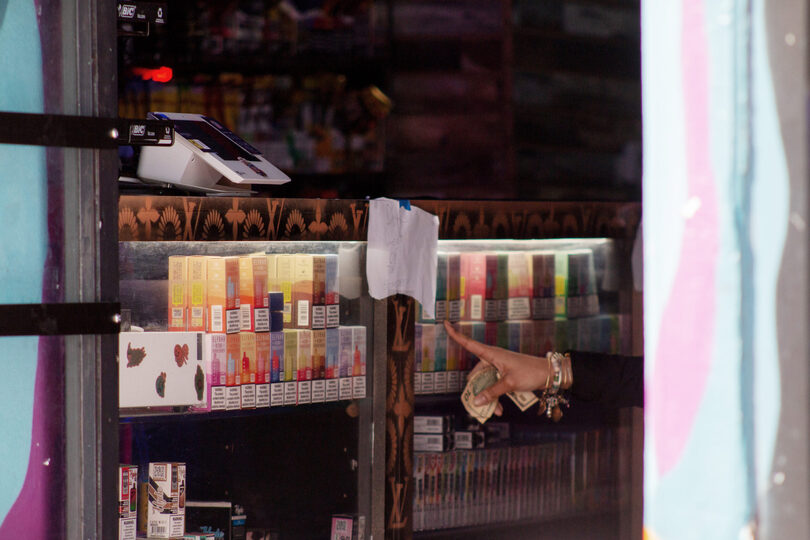New York state to receive $112.7 million from JUUL in multistate settlement

Meghan Hendricks | Photo Editor
New York State Attorney General Letitia James hopes to reduce youth vaping through new restrictions on JUUL Labs. Inc.’s sales and marketing abilities. The addictive vape products contain nicotine and other ingredients that are linked to lung disease and cancer.
Get the latest Syracuse news delivered right to your inbox.
Subscribe to our newsletter here.
New York state will receive $112.7 million to support underage vaping abatement programs across the state after finalizing a multistate settlement with JUUL Labs Inc.
JUUL agreed to pay $462 million over eight years to six states, including New York, and the District of Columbia, after claims of unlawful marketing of addictive products to minors, according to an April 12 press release from the Office of the New York State Attorney General. The agreement will also impose restrictions on JUUL’s sales and marketing abilities in hopes of reducing youth vaping.
“Too many young New Yorkers are struggling to quit vaping and there is no doubt that JUUL played a central role in the nationwide vaping epidemic,” New York Attorney General Letitia James said in the release. “Today’s agreement will help young New Yorkers put their vapes down for good and ensure that future generations understand the harms of vaping.”
The lawsuit alleged that JUUL, along with executives James Monsees and Adam Bowen, took part in deceptive and false advertising, fraud and illegality and selling tobacco products to minors.

Arlo Stone | Digital Design Editor
The multi-state agreement will restrict JUUL’s business sales and marketing abilities, including restrictions on youth-targeted marketing, the amount of online and retail purchases an individual can make and JUUL pod samples in stores, NYAG Deputy Press Secretary Halimah Elmariah wrote in an email to The Daily Orange.
“There will be stricter regulations on JUUL to prevent young adults from getting their hands on the products,” Elmariah said.
Concerns around e-cigarettes and vape products have also been prevalent in central New York. Specifically, alongside a letter to the FDA encouraging removal from the market, Sen. Chuck Schumer identified the Elf Bar disposable vape company as a potential “JUUL 2.0.” at an April 4 visit to Fulton Junior High School near Syracuse. In a news release, Schumer called out the company for “hooking” students across Syracuse and central New York with advertised flavors and Gen-Z-friendly colors.
“If left unchecked, this highly-addictive and health-damaging Elf Bar, that is targeting teens and kids, could become the next Juul, but even worse — because of its shoddy manufacturing and its commonly mislabeled nicotine levels,” Schumer said in the release.
According to the CDC, e-cigarettes contain nicotine and other ingredients like ultrafine particles and flavoring linked to lung disease and cancer. The products are also highly addictive and can harm adolescent brain development.
FDA and CDC’s 2022 National Youth Tobacco Survey found that roughly 1 in 10 — or more than 2.5 million — U.S. middle and high school students currently used e-cigarettes in 2022.
Elmariah said that under the new settlement, sellers will have to verify the age of consumers and secure JUUL products behind counters. JUUL will also be prohibited from using young models in their advertising and advertising near schools.
She added that the funds from the lawsuit will be used to support underage vaping abatement programs run by governmental agencies with the express goal to stop youth vaping, support community and school-based anti-vaping programs, enforce vaping laws and regulations and monitor and research efforts to reduce vaping.
The settlement comes after James sued JUUL in November 2019 for deceptive and misleading marketing, including the act of misleading consumers with regard to the products’ nicotine content and claiming its products were safer than cigarettes.
“There can be no doubt that JUUL’s aggressive advertising has significantly contributed to the public health crisis that has left youth in New York and across the country addicted to its products,” James said in the November 2019 press release.
JUUL is required to make its first payment to the six states and the District of Columbia within 90 days of the agreement’s settlement date, followed by seven annual payments which vary from state to state, totaling $462 million over the eight years.
Elmariah wrote that James’ office is still finalizing the details of how the revenue from the settlement will specifically be used and distributed throughout the state.





